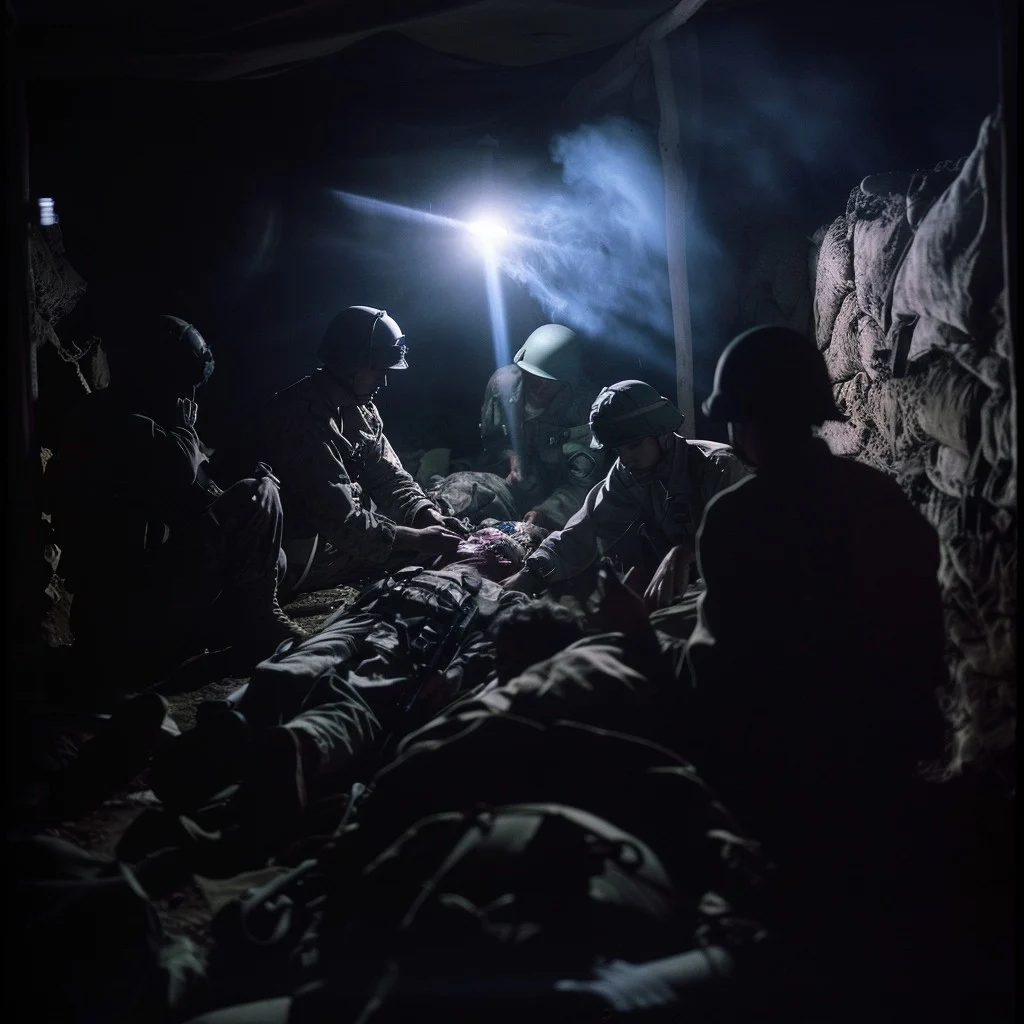Stephanie’s Story
Based on an interview with WI-HER’s Julie Wheeler.

I served in the Navy with Stephanie, who was a combat Independent Duty Corpsman (IDC) serving in Iraq with a Shock Trauma Platoon (STP). She was one of the few providers responsible for triaging and caring for injured Iraqis and US troops. Although Stephanie has been retired for quite some time, she still deals with the effects of being in a war zone as a combat IDC. But it wasn’t until five years after her deployment with the STP that she began having nightmares.
Images of dying patients haunted her dreams, and she felt an overwhelming sense of helplessness during her episodes of anxiety and insomnia. She has a background in mental health care and knew that she needed help, but because of her background, she felt guilty about taking an appointment that, she felt, might be more needed by other veterans. For this reason, she continued to delay her own care.
Finally, after a significant time “dealing” with her symptoms, she sought out care through the VA’s mental healthcare pipeline. It took upwards of two months to see her initial provider, who was about to retire. At that point, she didn’t have a lot of faith in the VA mental health services, “It felt I was a number and my concerns were not being addressed with empathy or understanding.” She immediately knew that that provider was not a good fit, but she had to wait another six to eight weeks to see another provider and receive her diagnosis of PTSD. About 10% of military medical workers have been found to have PTSD through screening. Stephanie
believes if she didn’t have experience in the medical field she may have stopped seeking treatment after her first visit. She is not alone. Veteran patients with PTSD have an astonishing 22-30% therapy dropout rate.
Stephanie’s situation is unique because of her experience as a mental healthcare worker. Although she faced similar access to care obstacles, she overcame them by advocating for herself because she understands how the system works.
Stephanie kindly shared her story with WI-HER’s Julie Wheeler as part of the blog post, “Reaching the Unreachable: Strengthening Mental Health Care Services for Veterans.”